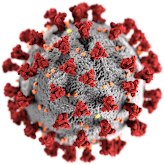We all have taken lessons from the pandemic. There were many things we got right, particularly the development and administration of safe and effective vaccines. There was also much we got wrong including inaccurate and contradictory information from government agencies and keeping kids out of school long after the data supported a return to in person learning. And while I am not a public health expert, I still wonder about the wisdom of having imposed restrictions and mitigating measures on all of us rather than focus more narrowly on at risk folks. I realize that this is a controversial issue as there was the fear that low-risk individuals could transmit the virus to a vulnerable recipient. The mortality and morbidity in elderly infected people were quite different from that of younger and sturdier individuals. Public health experts argued that we needed a broad brush to protect more people.
Protecting public health should always be a high priority goal but it must be balanced against other considerations. When we contemplate the educational loss that our kids suffered, the economic catastrophe of failed businesses and the mental health consequences of families who lost jobs or had to stay home to care for kids who were now at home for remote ‘learning’, it’s hard to argue that we drew the line with surgical precision. And even folks like me – a science and data-driven medical professional – now have a much more wary eye toward government health agencies. Trust and confidence will need to be rebuilt. Finally, the political poisoning of what should have remained a health issue not only sacrificed our health, but was also a symptom of a more serious and systemic national malady. I have seen no evidence since the pandemic has ended that suggests that a treatment for this illness is even under development.
The widening divisions
among us over all issues ranging from the consequential to the trivial is an
epidemic that continues to burn. What if the Food and Drug Administration
(FDA) and the Centers for Disease
Control and Prevention (CDC) could collaborate on devising a treatment for the
national affliction of Chronic Polarization Syndrome, it would go a long way in
restoring trust in these organizations.


I concur with your comments about the political divide. And epidemiologists are not finished studying transmission rates. But there is plenty of evidence suggesting that broader shut downs in blue communities did indeed save many lives -- possibly because asymptomatic but infected people in red states without lockdowns transmitted covid to the elderly and immunocompromised. See, e.g., https://www.openaccessgovernment.org/people-in-republican-counties-more-likely-to-die-from-covid-19/137131/ and https://www.theatlantic.com/health/archive/2022/12/covid-deaths-anti-vaccine-republican-voters/672575/
ReplyDeleteI follow your excellent points. Let's both hope that when the next pandemic strikes that our government, politicians, the medical profession and the citizenry demonstrate how much they have learned from the COVID-19 experience. Thx for your comment.
ReplyDelete